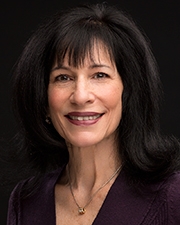School counselors are your ally. Here are six tips for working with them.
January 30, 2020For many families, a school counselor is the first place to turn for questions about a child’s mental or emotional health.
But parents and kids avoid the counselor’s office because they are afraid they, or their child, won’t be seen as “normal.” With National School Counselors Week starting February 3, it’s time to break that taboo.
“Counselors are in schools to support kids,” said Penn GSE’s Linda Leibowitz, who spent three decades as a counselor in Philadelphia schools.
“Counselors are trained to help student’s academic, social/emotional, and career development. I’ve also consulted parents and caregivers on everything from immigration, homelessness, and addiction. No area is too gray.”
Counselors’ doors are open. What should you expect if you walk in?
Leibowitz, the Co-Director of the Executive Program in School & Mental Health Counseling, offers this guide for how families can partner with school counselors to help children grow.
Introduce yourself in-person, by phone, or email
If you have never met the school counselor before, conversations about even minor problems can feel like high-stakes encounters. If you are at the school for another reason, see if you can stop by and say hello. It might feel awkward at first, but an early introduction can pay off in the long run.
And check the school website. Increasingly, counselors are creating web pages explain how they can help, like this one by Ashley Cocca, one of Linda’s former students who is the school counselor at Philadelphia’s Bache-Martin Elementary School.
Talk to your child more about their counselor
In the best case scenario, school counselors are going around to every classroom and to evening events, introducing themselves to their students. Don’t take that fact for granted though. Ask if your child knows who the counselor is. Explain that the counselor is there to listen to your child’s worries and celebrate their achievements. Emphasize that a conversation with a counselor isn’t a punishment, or a sign your child is in trouble.
You have a concern. What should you expect?
Set up a meeting and talk about your concerns with the school counselor. Depending on the need, the counselor will help create interventions to assist the student and your family.
You should expect to be included in important conversations going forward. School counselors can’t resolve problems in school without understanding a child’s world. Parents often provide a crucial window into that world.
“Parents really drive the educational system and we want to include them every step of the way—we welcome them,” Leibowitz says.
You are not being judged
Parents will sometimes hesitate to meet with the school counselor because they don’t want to be told their child has “problems.” Or they fear the school will judge them as “bad parents.”
Counselors are trained to observe children and assess if they are meeting their developmental milestones, and if not, to explore the why not. Leibowitz says parents shouldn’t worry. Most of the time, a child’s issue is part of a normal developmental process.
Sometimes more help is needed
Certified school counselors are mental health professionals. But sometimes a student’s needs require greater interventions. For example, a student might need intensive therapy that can’t be delivered in a school setting.
In these cases, counselors can help parents understand what resources are available for them outside the school, and what might work best for their child. When appropriate, they can also help implement an outside therapist’s suggestions for a child at school.
Children have rights too
Parents will occasionally want to know everything a child tells a school counselor. That’s not a school counselor’s role.
Counselors should tell both students and parents that what a student says will be confidential unless the counselor is concerned about the student’s safety, welfare, or the welfare of others.
Both kids and parents should also know that a counselor’s office is a space where students can talk about feelings, emotions, or problems they don’t feel comfortable or ready to discuss with their family.


